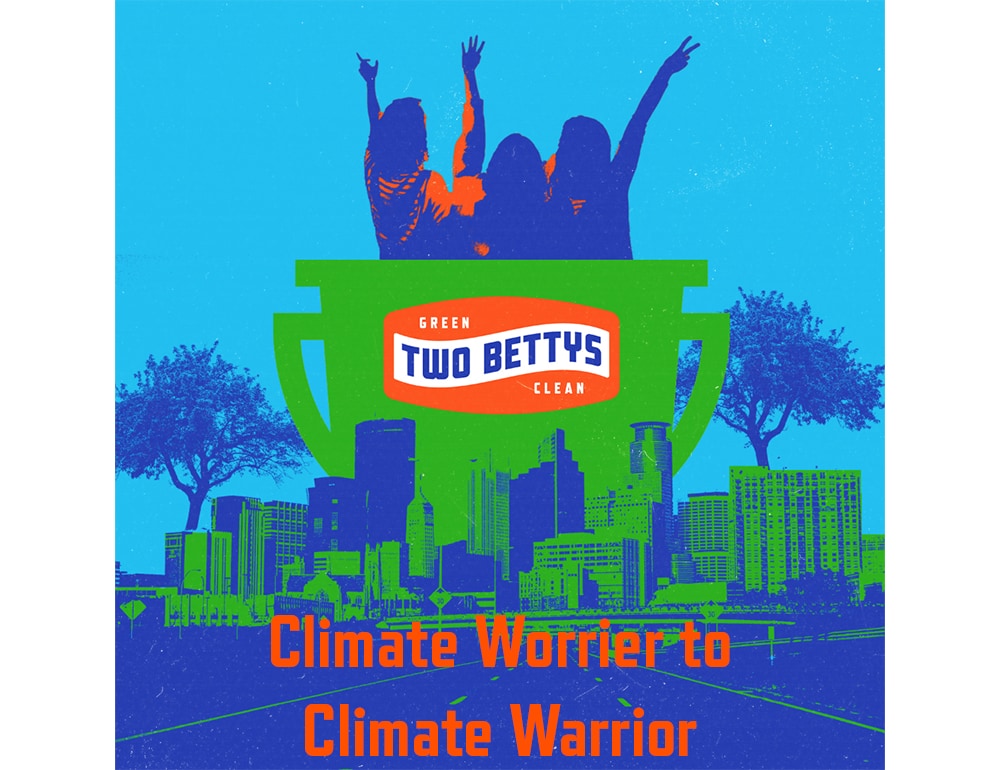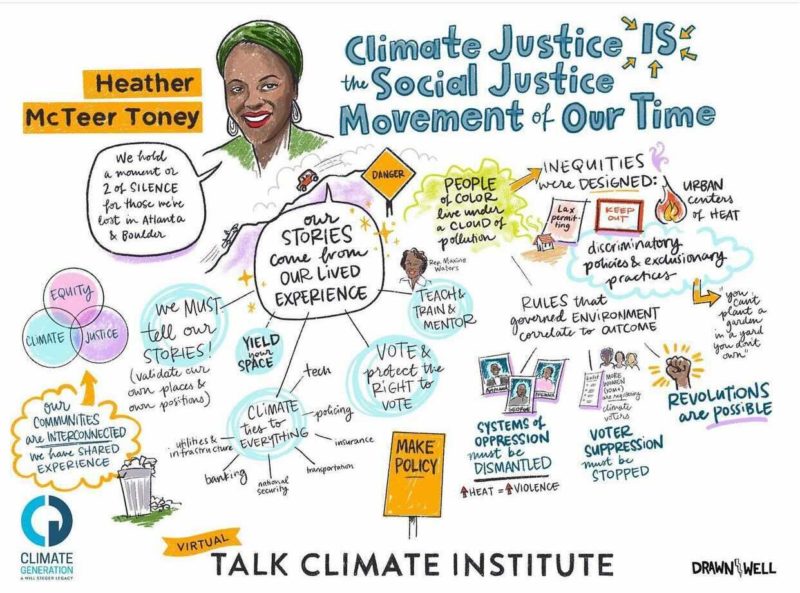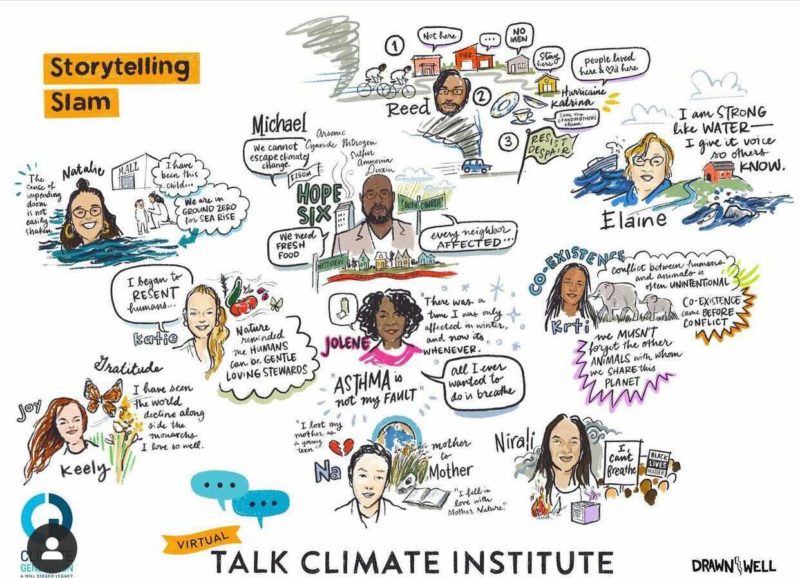
Climate Worrier to Climate Warrior
Anna Tsantir, Founder Lady, Two Bettys Green Cleaning
May 19, 2021

Illustration by Lisa Troutman
Have you ever found yourself in a room full of strangers, and you quickly realize these are your people? That is what it is like for this climate worrier at the recent Talk Climate two-day workshop hosted by Climate Generation. Right away, I saw that this was a group that shared my values about the environment, my anxiety over the future of the climate, and my commitment to take action.
The headlining speaker was Heather McTeer Toney, who served as the first African-American, first female, and youngest mayor of Greenville, MS. In 2014, she was appointed by President Barack Obama to serve as Regional Director for the Environmental Protection Agency’s (EPA) Southeast Region, where she served until 2017. She currently works as Mom’s Clean Air Force’s Senior Advisor.
Heather McTeer Toney taught us that climate ties to everything, and that climate justice is the social justice movement of our time. That’s a big statement considering the current reckoning of police brutality and systemic racism. Because of her background, Toney knows that climate change will magnify pollution and environmental harm for black and brown families. If we only have 10 years to turn this around, we’ve got to get to work and we have to get the votes.
The challenge
The challenge isn’t in preaching to the choir—fellow climate worriers and warriors. It’s learning how to have meaningful discussions about climate change with family members, friends and co-workers who aren’t fully on board yet. And with people who might care about the climate, but find talking about it too depressing or overwhelming. These are the folks we most need to engage. But how to talk to people without either
1. Overwhelming them with hopelessness
2. Depressing them to the point they grab a bottle of whiskey, or
3. Feel guilt and shame, and/or
4. Simply shut down. It’s a really hard question, but it’s an important one.
Since, as the T-shirts so eloquently put it – there is no Planet B.
Right now, the media only covers climate change–our biggest threat–0.4% of the time in the media. If the media won’t talk about it, it’s up to us. At the Talk Climate workshop, we practiced just this in breakout rooms. It was amazing to hear people tell their stories and connect mine to theirs.
There was Natalie from the Cleo Institute in Miami, who shared what it’s like to run from hurricanes when you rent and don’t own, how her community manages that experience. A participant from MN shared the sweet sorrow of seeing fewer and fewer butterflies every year. There was Michael from South Carolina, who shared that a polluting company was very purposefully located next to the black community where he grew up, which caused the rain to burn his skin as a kid. He grew up to become a lawyer who won reparations and more from that polluting company and the state. Jolene, a teacher from St. Paul, told us of her battle with asthma, which is getting worse due to environmental factors, and it’s becoming harder for her to work..
In the breakout session, I shared the work Two Bettys is doing to promote Green Business and fight greenwashing, which is when an organization leads people to believe that they’re environmentally friendly, when actually the opposite is true.
We learned that sharing stories is the most powerful action we can take. These personal stories ground us in how climate change impacts individuals in Minnesota, across the country, and across the world. And stories open the floodgates of conversation about climate justice.
Heather McTeer Toney emphasized how important those stories are, but also how important it is to yield your space when you see that some people aren’t getting as much airtime as you.

Illustration by Lisa Troutman
So what can a person do!!???
The other great thing about this Climate Talk is that we walked away with action steps.
How to talk climate change so people will listen
Heather McTeer Toney recommended these 7 action steps to keep in your pocket:
Step 1: Listen
If you want people to listen to you, you first need to hear them out. When someone feels heard, they’re more likely to engage in a conversation with you. We practiced this and it works! Though some of my first attempts have been clumsy – I am getting better at it. And I hope that one day, as I arm myself with information and new skills – I will be able to move my climate worry – to climate warrior, right alongside my community.
Step 2: Get vulnerable
When you share your personal story, it helps to create a safe space for others to share their stories.
Step 3: Discuss your fears
If you have anxiety about the future of our planet, you’re not alone. Talk about your climate concerns, and invite others to tell you about their fears.
Step 4: Ask for info about what you don’t know
We’re all learning!
Step 5: Find connectivity
People may come from different backgrounds, but we all can find common ground.
Step 6: Find your story
What’s your personal connection to climate change and climate justice?
Step 7: Connect it back to climate change
The stories we share and connections we make build a strong foundation for taking climate action.
Check this video out on how to Talk Climate – by listening first.
I walked into the Talk Climate workshop as a Climate Worrier. And let’s be real–I still am worried. But I also feel good about the action steps I came away with, which help me transform my fear into action, and become a Climate Warrior. As dark as it may sound,I just want to look my kids in the eye when I am 80 and know I did everything I could.